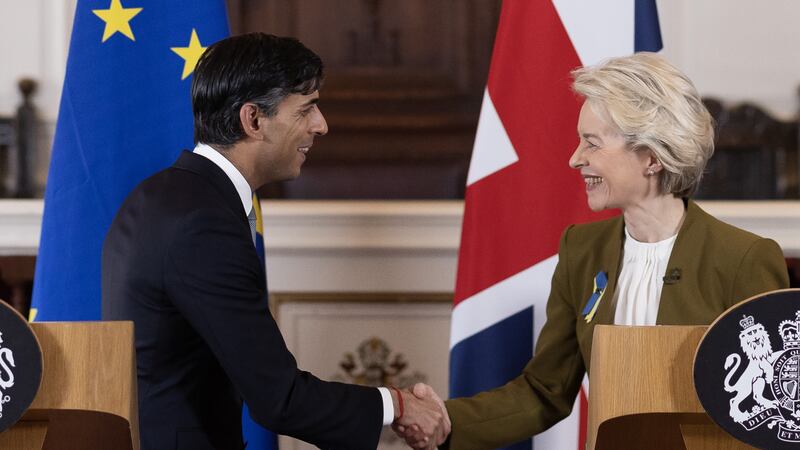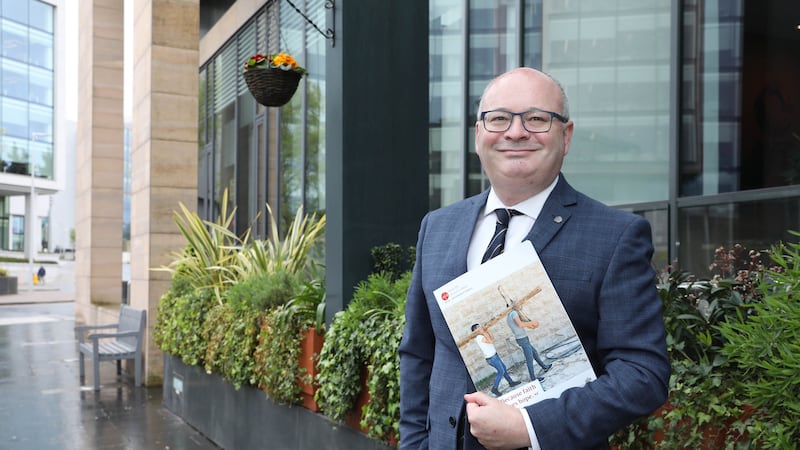Businesses in Northern Ireland are concerned that regulatory divergence between Britain and the EU will jeopardise supply chains and leave them in "no man's land", according to a House of Lords report.
The peers' assessment of the Windsor Framework, published today, concludes that February's revised post-Brexit trade agreement is an improvement on the protocol but that problems remain.
The Lords' Sub-Committee on the Protocol on Ireland/Northern Ireland says manufacturers and retailers require "clarity" and that the British government and EU "need urgently to explain what the Windsor Framework means in practice for businesses".
The cross-bench select committee's ten members include Reg Empey, Nigel Dodds, Margaret Ritchie, Nuala O'Loan and Peter Hain.
Beginning in March, the committee heard evidence from the British government and EU Commission, as well as business representatives, academics and community representatives.
Read more: Survey shows support for Windsor Framework three times greater than opposition
Maros Sefcovic – EU and UK's joint priority is full implementation of Windsor Framework
The report examines the economic, political, legal and constitutional impact of the Windsor Framework.
It finds an overall welcome for the deal, which creates a so-called green lane for goods entering the north from Britain, including agrifood produce, parcels, pets and human medicines. The framework's potential for problem solving "in a collaborative manner" is also regarded as positive.
However, the report says that for some businesses the processes under the Windsor Framework will be "more burdensome than under the protocol as it has operated with grace periods and easements".
It also notes that while the green lane will benefit large retailers in particular, some retailers and some other sectors, may have to use the red lane.
On veterinary medicines, the committee welcomed the extension of the grace periods until the end of 2025 but heard warnings from industry representatives that without a permanent solution, the supply of more than 50 per cent of veterinary medicines may be discontinued, posing a risk both to animal and human health, and to agrifood supply chains.
Business representatives stressed to the committee that regulatory divergence, whether between Britain and Northern Ireland, or between Northern Ireland and the Republic (and the EU as a whole), remains their number one concern.
They say there is an underlying fear that the north will find itself in a “no-man’s land” between Britain and the EU, placing many firms' competitiveness and supply chains in jeopardy.
The peers have renewed a call for the British government to create and maintain an up-to date record of regulatory divergence and its impact on Northern Ireland.

Committee chair, Lord Jay of Ewelme, said that while the framework was a "distinct improvement" on the original protocol it does not solve all the problems created by its predecessor.
"For some businesses, however, processes will be more burdensome under the Windsor Framework than under the protocol as it operates now – and where there is uncertainty, the red lane, with its more complex procedures, may have to be used," he said.
“Though the Windsor Framework is a clear improvement over the original protocol, it is highly complex."


